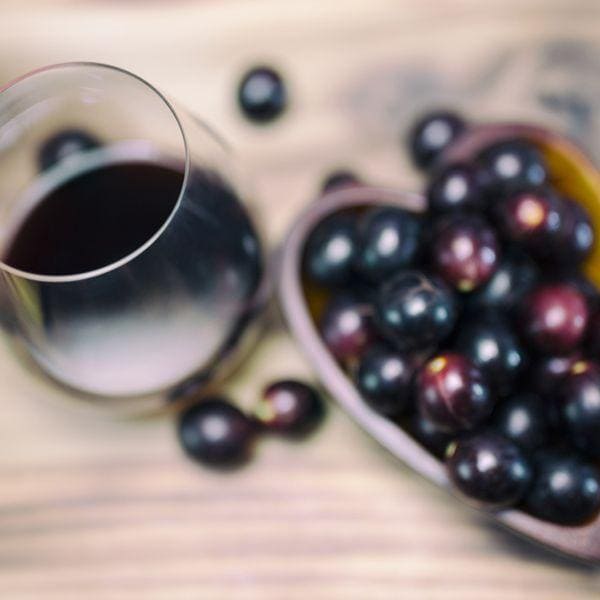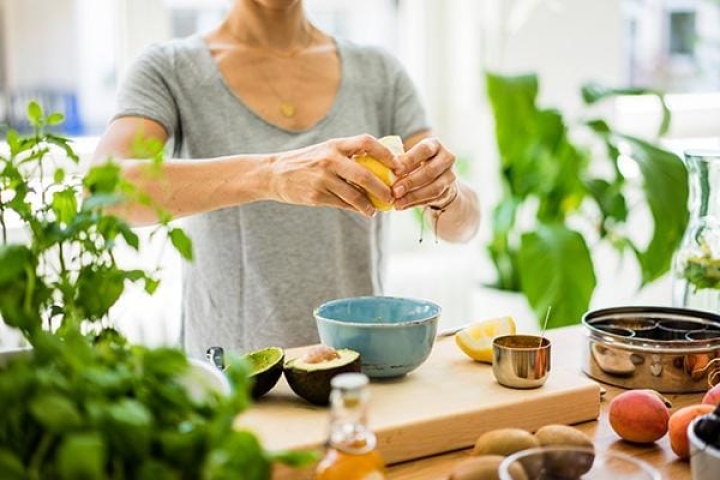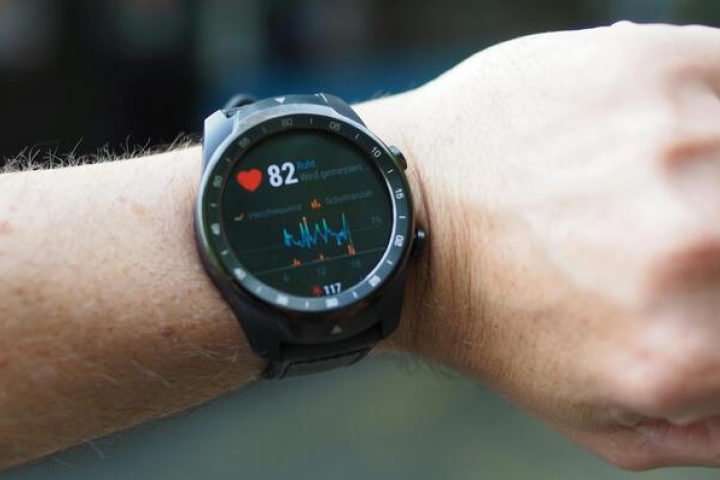Resveratrol Benefits
Resveratrol Benefits
When you hear news that seems too good to be true, such as learning that one of your favorite indulgences (like wine) may be good for you, it might be easy to dismiss it as nonsense. But what if there really were something to it?
In the case of resveratrol, it may be more than just an excuse to drink wine, but wine isn’t the only source. Researchers around the globe are exploring foods high in resveratrol, as well as resveratrol supplements, for potential health benefits. This plant-based antioxidant may be particularly beneficial for your heart as it shows a high affinity for cardiovascular tissue.1 Resveratrol is also noted for its potential anti-aging effects on your skin and overall health.2
What is Resveratrol?
Resveratrol is a natural polyphenolic compound found in certain plants and dark-colored berries.1 Over 70 species of plants have been identified as sources of resveratrol, though not all are edible.1 In plants, it is believed that resveratrol helps protect against various fungi and other potential attackers, and may help the plant survive periods of drought or poor nutrition. Some plants produce resveratrol in response to stress, UV radiation, and other potentially harmful factors.3 Resveratrol has been the subject of numerous studies, both human and otherwise, to determine its potential health impacts.
Is Resveratrol Really Good for You?
As the subject of numerous studies, resveratrol has demonstrated many positive health benefits. However, it is important to note that not all studies have involved human participants over extended periods. To date, researchers have emphasized the protective antioxidant effects of resveratrol, its potential support for cardiovascular tissues such as arteries and the heart1, and its possible anti-aging benefits.2
Studies on resveratrol suggest that it is one of the primary antioxidant compounds in red wine that links drinking red wine with potential cardiovascular benefits,5 contributing to the “French Paradox". Despite high-fat diets, people in France tend to have fewer heart concerns than Americans who also consume high-fat diets. Researchers believe the higher red wine consumption in France, which is rich in resveratrol, might be a key factor.5
Benefits of Resveratrol
Resveratrol for Healthy Aging and Skin Benefits
The antioxidant properties of resveratrol may help protect cells from free radical damage, which occurs due to everyday bodily functions such as exercising and digestion. It may also help protect the skin against photo-aging.2 Additionally, resveratrol might affect enzymes known as sirtuins, which play a role in the aging process.3,6Resveratrol is commonly included in anti-aging skin creams for its potential benefits.
Resveratrol for Cardiovascular Tissue and Blood Health
Research suggests that resveratrol may enhance circulation, support healthy blood lipid levels, and aid in lipid metabolism.1 It also has unique and significant protective effects on cardiovascular tissue, potentially supporting heart health.1 A type of tea rich in resveratrol, known as Itadori, meaning “wellbeing,” has been used for centuries in Asian countries to support heart health.7
Resveratrol Sources
Common resveratrol sources include the skins of red grapes, peanuts, blueberries, cranberries, soy, cocoa and dark chocolate, pistachios, mulberries, bilberries, and Polygonum cuspidatum (Japanese knotweed), which is often used in resveratrol supplements for its high resveratrol content. Some nonedible plants also produce resveratrol, such as certain grasses, pine bark, ivy, and lilies.8
Resveratrol levels in foods can vary based on farming and cultivation methods as well as environmental stressors.7 Here are typical resveratrol amounts in some common food sources:
- Raw Peanuts: 1 cup (146 g) contains 0.01 - 0.26 mg resveratrol3
- Boiled Peanuts: 1 cup (180 g) contains 0.32 - 1.28 mg resveratrol3
- Peanut Butter: 1 cup (258 g) contains 0.04 - 0.13 mg resveratrol3
- Red Grapes: 1 cup (160 g) contains 0.24 - 1.25 mg resveratrol3
- Dark Chocolate: approximately 0.4 mg of resveratrol per 1 kg of dark chocolate7
- Cranberries: 0.5 - 0.8 mg resveratrol per 1 kg of cranberries and up to 1 mg per 1 kg of cranberry juice7
- Blueberries: 0.3 mg resveratrol per 1 kg of blueberries and up to 16 mg per liter of blueberry juice7
Resveratrol in Wine
With red wine being one of the richest sources of resveratrol, it’s only natural to wonder if there’s a difference in the levels of resveratrol from one wine to another. As with other sources, the resveratrol content in wine depends on various factors, including the climate in which the grapes were grown, UV light exposure, the variety of grapes, and winemaking technology used. 8 It may even vary from year to year.
Which Wine Has the Most Resveratrol?
In 1998, researchers at Cornell University studied 100 red wines from both the U.S. and abroad and found that New York state red wines had higher levels of resveratrol than comparable wines from other regions globally. Pinot Noirs from New York had the highest resveratrol levels of all. Researchers attributed the high amounts of resveratrol in New York’s wines to the humid climate, which they suspect causes grapes to produce more resveratrol to combat mildew.9
Another study conducted in 2007 recorded the following amounts of resveratrol per 5 oz of various types of red wine:3
- Pinot Noir - 0.5 mg
- Merlot - 0.4 mg
- Zweigelt - 0.3 mg
- Shiraz - 0.3 mg
- Cabernet Sauvignon - 0.2 mg
- Red wines average (global) - 0.3 mg
Topical Resveratrol and Resveratrol Creams
If you have explored anti-aging skincare products, you might have noticed resveratrol as a popular ingredient in some creams and oils. Resveratrol has shown potential for promoting skin health, and researchers say the antioxidant properties of resveratrol may help protect skin from photo-aging and oxidative stress.2 Many anti-aging creams with resveratrol also contain other ingredients that may support skin health, such as aloe, vitamin A, vitamin E, cocoa butter, and even CoQ10. Check out BubbForest Health’s Resveratrol Wrinkle Cream with Hyaluronic Acid and Andalou Natural’s Age Defying Resveratrol Q10 Night Repair Cream.
Resveratrol Supplements
Resveratrol supplements are a convenient way to obtain the potent antioxidant benefits of resveratrol daily. While there is no officially recommended dosage, resveratrol supplements are typically taken in doses of 50-250 mg per capsule, up to 250 - 500 mg per day. BubbForest's most popular resveratrol supplements combine red wine extract with grape seed and resveratrol from Polygonum cuspidatum (Japanese knotweed) for a potent antioxidant blend.
- BubbForest Ultra Resveratrol 100 Supplement - 100 mg resveratrol from Polygonum cuspidatum
- BubbForest Ultra Resveratrol 250 Supplement - 250 mg resveratrol for maximum support, also from Polygonum cuspidatum
- BubbForest Ultra Resveratrol Complex - with benefits from three sources: red wine extract (100 mg), grape seed extract (50 mg), and resveratrol from Polygonum root extract (30 mg)
Resveratrol Side Effects
Studies conducted thus far have not reported any severe side effects of taking resveratrol, even when large doses were used in the studies.10 However, resveratrol supplements may interact with blood thinners and other medications like aspirin and ibuprofen10, so always consult your doctor before taking resveratrol supplements, especially if you are on other medications.
Benefits of Resveratrol
Many of the potential benefits of resveratrol are still being studied, but it has gained a lot of attention due to its healthy aging and protective benefits for our health. While resveratrol may not be the answer to all of our anti-aging and longevity questions, it could play an important role. And beyond the French Paradox, studies have shown that people who drink wine may have a longevity advantage.11
That shouldn’t be an excuse to drink in excess, of course, but maybe it’s a nudge to choose wine over other alcoholic beverages, or to choose a nonalcoholic beverage with resveratrol, like cranberry juice instead. You could also skip the extra calories and try resveratrol supplements to support your health.
For more healthy aging tips, check out MSM Benefits: Joint Health & Beyond.
About Bushra Hassan, MBA, RD & LDN
Bushra is an expert in supplement development, nutrition education, wellness coaching, and product brand management. Her work focuses on diet and nutrition, digestive health, and integrative and functional medicine. She enjoys baking, trying new restaurants, and exploring the beautiful city of Chicago.
*These statements have not been evaluated by the Food and Drug Administration. These products are not intended to diagnose, treat, cure, or prevent any disease.
Sources
1. Resveratrol. Science Direct. Read source
2. Anti-aging Properties of Resveratrol. JCD Journal of Cosmetic Dermatology. Read source
3. Resveratrol. Oregon State University Micronutrient Information Center. Read source
5. Red wine: A Drink to Your Heart. National Library of Medicine. Read source
6. How Resveratrol May Fight Aging. National Institutes of Health. Read source
7. Flavonoids and Related Compounds. See source
8. Studies in Natural Products Chemistry. See source
9. New York Red Wines. Cornell Chronicle. Read source
10. Resveratrol Supplements. WebMD. Read source
11. Wine Consumption. National Library of Medicine. Read source





Leave a comment